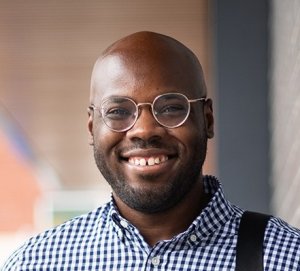Presented By: Engineering Education Research
Using Relational Data to Study Socio-academic Processes in Engineering Teaching and Learning
Trevion S. Henderson / Tufts University

Engineering education researchers often assume that teaching and learning is relational and that students’ socioacademic relationships—with peers, faculty, and other institutional agents—can support or inhibit important processes and outcomes. However, the dominant approach to studying socioacademic processes relies on the principles of methodological individualism, where socioacademic issues are studied at the individual level using methods that assume observations are independent. In this talk, we will describe two studies that use relational data, where students (e.g., in classrooms, in small teams) are modeled as social networks of agentic actors. In Study 1, we use social network theory to model teamwork processes in small engineering teams. In study 2, we use network analysis to study peer collaboration networks in a large, introductory STEM class. The talk will include a discussion of methodological and ethical issues, including challenges related to modeling sociodemographic characteristics, missing data, and social and emotional concerns, in social networks studies. We will also discuss future directions for engineering education research.